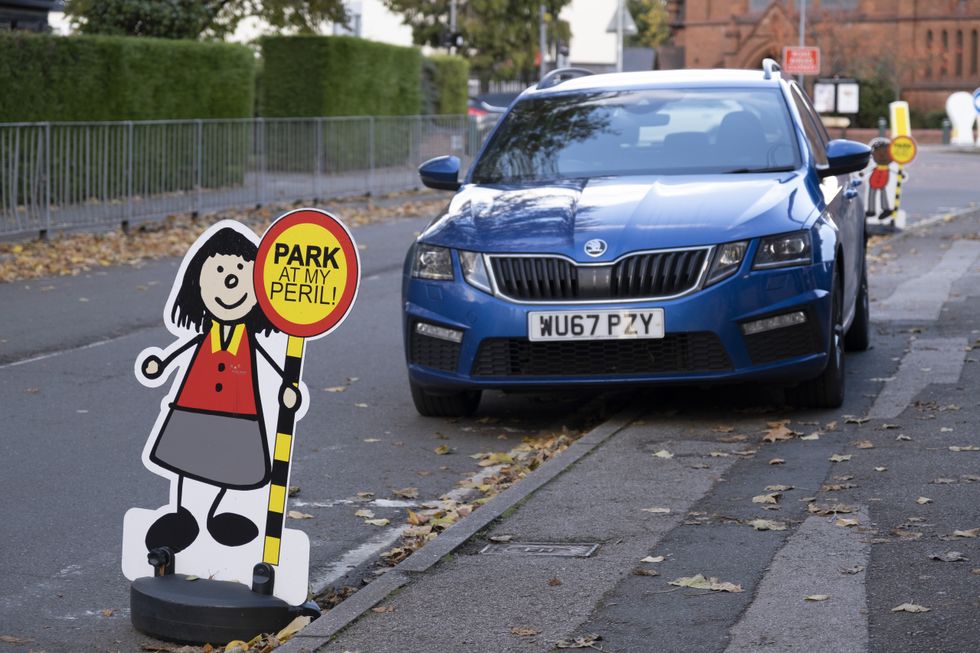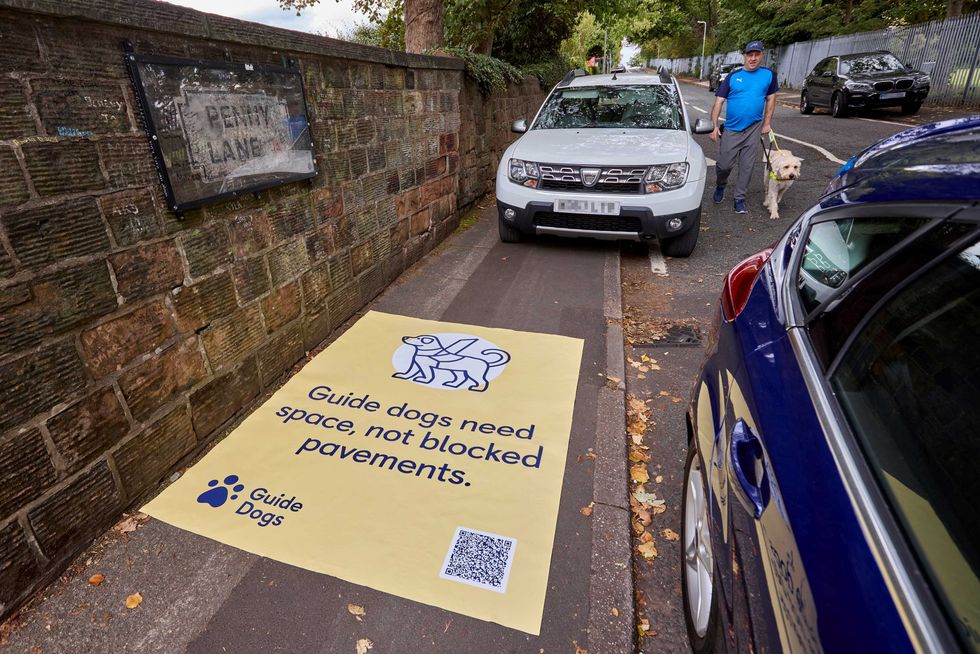Labour urged to ban pavement parking as millions support new restrictions - 'A clear law is needed!'

Drivers can be hit with a £100 fine for parking on the pavement in Scotland
Don't Miss
Most Read
Labour is being urged to introduce a national ban on drivers parking on pavements to protect vulnerable groups from being forced onto roads.
New research from Guide Dogs found that three-quarters of councillors support the call to introduce powers to tackle pavement parking.
A further 84 per cent of councillors believe that pedestrians face major safety risks when cars are parked on the pavement in their local area.
It also found that just under two-thirds of Britons want to see pavement parking banned, showing clear support for a ban on the practice.
TRENDING
Stories
Videos
Your Say
While pavement parking is already illegal in Scotland and London, there are no rules about the practice across the rest of England and Wales.
The Scottish Government introduced new measures in 2023 to ban the practice, with local authorities able to fine drivers £100, which is reduced to £50 if paid within 14 days.
The ban impacts parking, double parking and parking at dropped kerbs, with exemptions available for emergency vehicles.
Ahead of the Labour Party Conference in Liverpool this weekend, Guide Dogs is calling on the Government to ban the dangerous practice.

Campaign groups are calling for more to be done to protect vulnerable people around cars that are parked on the pavement
|GETTY
The national sight loss charity has installed temporary pavement parkings on Liverpool's iconic Penny Lane to highlight the issue.
The markings show the space needed for a guide dog owner, a pram user and a wheelchair user to use the pavement in a safe manner.
Eleanor Briggs, Head of Policy, Public Affairs and Campaigns at Guide Dogs, pointed to the research, proving that local leaders are supportive of a ban.
She said: "Pavement parking is unsafe, the current system just isn't working across most of the country, and a clear law is needed to make sure everyone can travel down their streets safely, particularly people with sight loss."

The Guide Dogs campaign has been installed on Penny Road in Liverpool ahead of Labour Party Conference
|GUIDE DOGS
LATEST DEVELOPMENTS:
A staggering 83 per cent of the public reported that they had been forced to walk in the road because of vehicles blocking the pavement.
This can cause serious safety risks for pedestrians with wheelchairs, prams and people with sight issues.
One campaigner, Helen Brewis-Levie, said pavement parking was not "bad parking" but was actually a daily danger to blind people around the UK.
She reported that she had been forced into traffic, verbally abused by passing motorists and had even broken her wrist after falling when trying to pass a car parked on the pavement.

Helen said her life changed when she moved to Scotland, where pavement parking is banned
|GUIDE DOGS
Ms Brewis-Levie said her life changed when she moved to Scotland, where pavement parking is illegal, after successful campaigning from Guide Dogs and other organisations.
"In Scotland, pavements belong to people again, not vehicles. It's given me freedom, independence and confidence. Scotland has shown that it works. Now the rest of the UK must follow," she added.
Despite launching a consultation on pavement parking in 2020, the Government has failed to publish its findings, with the Department for Transport spokesperson telling GB News that they will be released "in due course".
A spokesperson for the DfT said: "Our priority is to make it as easy and accessible as possible for everyone to get around, and we recognise the problems pavement parking can cause for people across the country.
"That's why we have commissioned new research to better understand the impact of pavement parking and ensure the solutions we take forward work in practice. The Government will continue to review the issue nationwide and will update as soon as possible."











